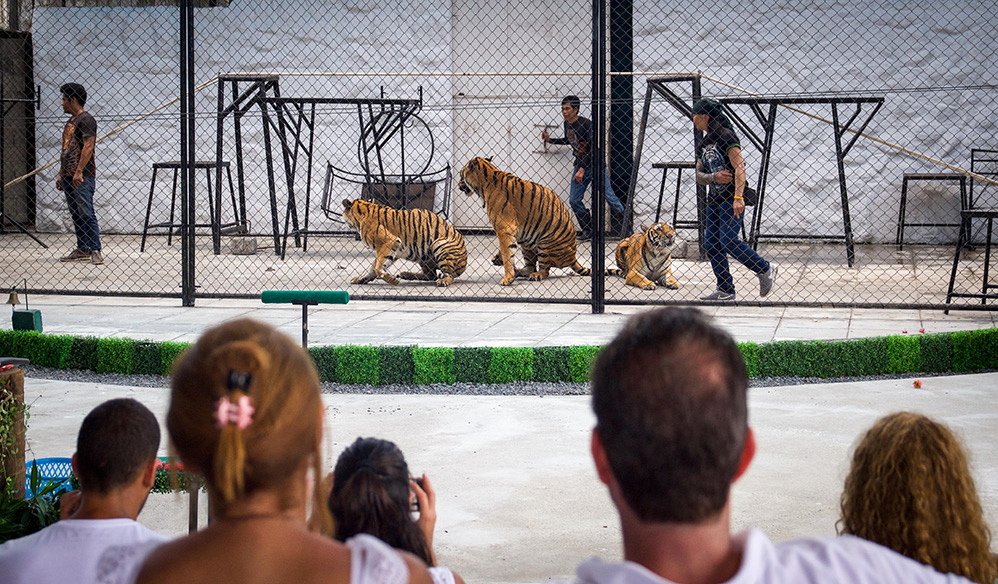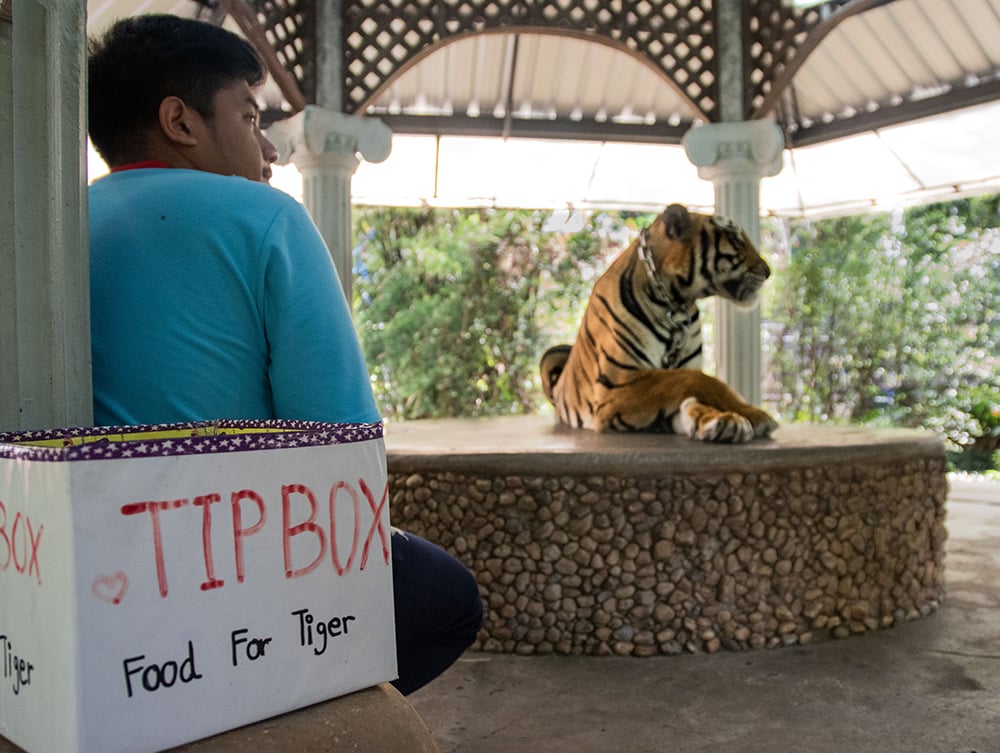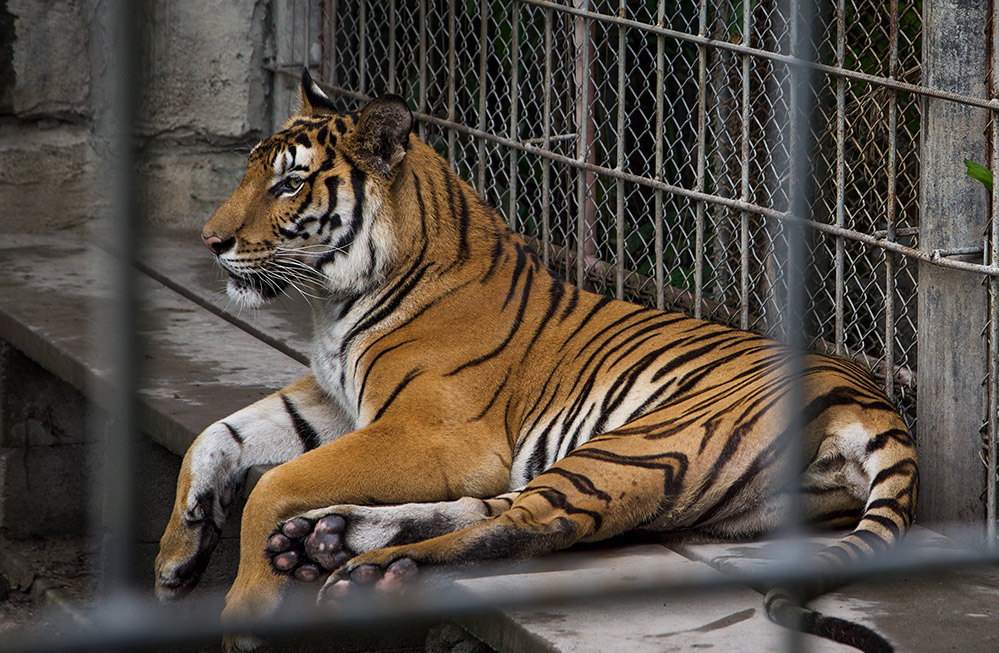People Are Still Paying for Tiger Selfies
Chained and confined to a small platform, this tiger at Phuket Zoo in Thailand paces endlessly. He’s frustrated and distressed, yet tourists are still paying to take photos with him.
A Selfish Selfie
Phuket Zoo is hardly the only place where captive tigers are forced to pose for selfies, as more than 8,000 tigers are held in captivity across Asia. They’re usually bred very quickly –cubs are taken away from their mothers within the first few hours or days after birth so that they will become accustomed at an early age to being handled by humans. By contrast, in their natural habitat, tiger cubs are protected and nurtured by their mothers for approximately two years.
No animal chooses to appear in photos with numerous strangers, day in and day out. In order to force captive animals to perform on cue, trainers often break their spirits by beating them into submission. They are also kept chained or in barren cages and are sometimes even declawed and drugged, all just so humans can take their selfies safely.

Why Is This Still Happening to Tigers?
The captive-wildlife tourism industry continues to operate largely because of ignorance. Tourists don’t always see the true nature of the animals’ living conditions or understand what it means for an animal to be denied a natural life from birth to death.
Visitors also simply fail to recognise signs of pain and distress in other animals. For example, a tiger in captivity may start to show signs of zoochosis – repetitive swaying, pacing, head-bobbing, bar-biting, compulsive licking, and self-mutilation, such as biting their own tails. During 2015 and 2016, World Animal Protection visited 17 captive-tiger facilities across Thailand and found that 12% of the tigers exhibited these kinds of behavioural issues.
Tourists on holiday generally want to have positive experiences and sometimes ignore their better judgement. Feeding a baby tiger is a “once in a lifetime” opportunity – right? But this fleeting instant of self-gratification means a lifetime of cruelty for the tiger.
In addition, social media tends to confirm what tourists want to believe, because their friends and the paid influencers they follow online often support abusive facilities, too.

How You Can Help
Never visit a zoo or pseudo-sanctuary. Ticket sales fund cruelty, and no visit is worth the lifetime of suffering that animals endure when they’re stripped of their dignity and everything that’s natural and important to them.
Have you taken a photo with a captive wild animal in the past without realising the consequences? Don’t you wish someone had told you all this beforehand? When we know better, we do better – that’s why it’s so important to share this information with everyone you know. Shifts in moral consciousness only occur when we share our ideas and experiences and speak up.

